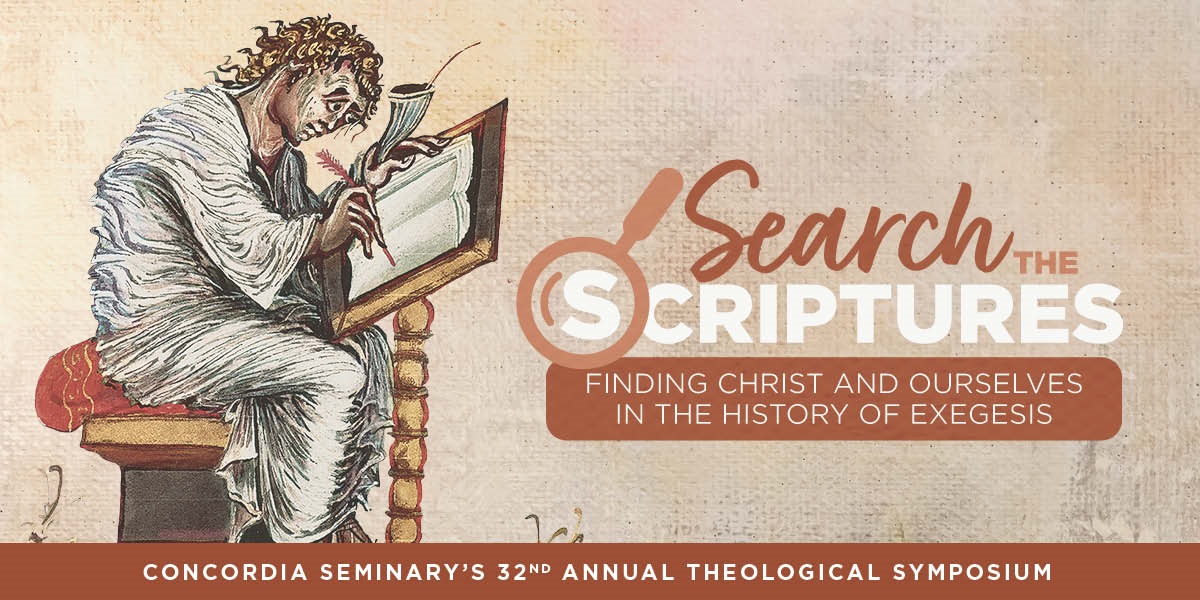Loading...
Keywords
psalms, worship, hermeneutic, adiaphora, ceremonies, christian, lutheran church, crucified
Description
This presentation begins with a few real examples (altered for confidentiality and for humor) where the book of Psalms, yes, the entire book of the Bible, are invoked as a defense for different worship practices found in the church today. By this, Moss introduces the problem of a hermeneutic of self-service.” It is less often ignorance, more often pragmatism and personal preferences that lead to the twisting and misapplying of various psalms, or the Book of Psalms as a whole to defend an innovation or a well-liked traditional practice. The practice is driving the interpretation of the text, rather than the other way around. In the second section, Moss takes up the “casualties of the worship wars” which are reason and reasonability. Moss unpacks several logical fallacies committed on both ends of the spectrum (from liturgical dance to incense thuribles). This leads quickly into the third section rehearsing a better hermeneutic for interpreting and applying both the book of Psalms and Old Testament worship. Both are filled with Christ Jesus and are indeed fulfilled in Him. That justification of the sinner before God by the sacrificial blood of Christ must not be lost in our interpretation of Scripture or in our worship practices. The final section of the paper offers a path forward guided by the Formula of Concord, article X on adiaphora. Far from just another trump card (like, “But the psalms do that!”), the Formula reminds us of what a healthy, Christian manner we should have when going about the increase or decrease of rites and ceremonies. Moss concludes with a plea for better logical reasoning, faithful exegesis of the Book of Psalms built on a sound biblical hermeneutic, and a centrality of the clear Gospel of Jesus Christ and Him crucified when deliberating what should or should not be done in worship.
Submission Type
Bible Study; Lecture; Sermon Prep
Submission Topics
Ecclesiology (The Church); Education; Literature and Art; Practical Theology; Preaching and Teaching; Scripture Interpretation; Sin; Worship
Scripture References in this Resource (separated by semi-colons)
Psalm 87:7; Psalm 149:3; Psalm 150:4;
Submission Audience
Laity; Ministers; Scholars
Submission Cost
Free
“But the psalms do that…” Proof-texting innovations for worship
This presentation begins with a few real examples (altered for confidentiality and for humor) where the book of Psalms, yes, the entire book of the Bible, are invoked as a defense for different worship practices found in the church today. By this, Moss introduces the problem of a hermeneutic of self-service.” It is less often ignorance, more often pragmatism and personal preferences that lead to the twisting and misapplying of various psalms, or the Book of Psalms as a whole to defend an innovation or a well-liked traditional practice. The practice is driving the interpretation of the text, rather than the other way around. In the second section, Moss takes up the “casualties of the worship wars” which are reason and reasonability. Moss unpacks several logical fallacies committed on both ends of the spectrum (from liturgical dance to incense thuribles). This leads quickly into the third section rehearsing a better hermeneutic for interpreting and applying both the book of Psalms and Old Testament worship. Both are filled with Christ Jesus and are indeed fulfilled in Him. That justification of the sinner before God by the sacrificial blood of Christ must not be lost in our interpretation of Scripture or in our worship practices. The final section of the paper offers a path forward guided by the Formula of Concord, article X on adiaphora. Far from just another trump card (like, “But the psalms do that!”), the Formula reminds us of what a healthy, Christian manner we should have when going about the increase or decrease of rites and ceremonies. Moss concludes with a plea for better logical reasoning, faithful exegesis of the Book of Psalms built on a sound biblical hermeneutic, and a centrality of the clear Gospel of Jesus Christ and Him crucified when deliberating what should or should not be done in worship.


